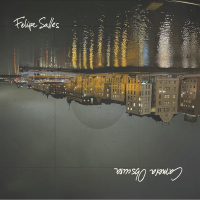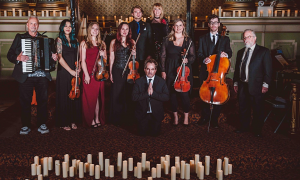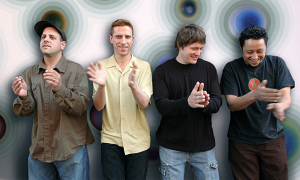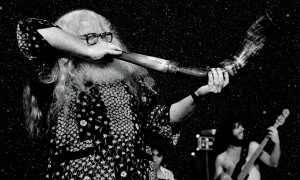Home » Jazz Articles » From the Inside Out » Sonic Styles of the Seventies
Sonic Styles of the Seventies
Hugo Fattoruso
multi-instrumentalistb.1943
Hugo Fattoruso Y Bario Opa
Far Out Recordings
2018
Once upon a time in Uruguay, teenage brothers Osvaldo and

Hugo Fattoruso
multi-instrumentalistb.1943
Opa
band / ensemble / orchestra
Airto Moreira
percussionb.1941

Milton Nascimento
guitar and vocalsb.1942
On Hugo Fattoruso Y Bario Opa, Fattoruso's unmistakable keyboard touch re-emerges in an ensemble that includes his son Francisco on bass, guitarist NicolЁўs Ibarburu, and FIVE percussionists: Tato Bolognini on drums, Albana Barrocas on percussion, and the three-headed monster of the Silva brothers (Matthias, Guilermo Diaz and Wellington), from whose Afro-Uruguayan candombe rhythms the entire set blasts off.
Penned by Francisco, "Candombe Beat Funk" swings between two rhythmic movements, shifting back and forth on the composer's bass, which upshifts his dad's keyboard spotlight into overdrive. Layers of acoustic percussion build into "Candombelek," adorned with tropical vocals and the leader's cool, crisp electric keyboards. Its companion piece "Candombe Alto" burns more hot and bright with Afro-Cuban rhythms, and gloriously crowns its percussive heat with an electric keyboard melody that Fattoruso unleashes like a soaring, spiraling eagle.
The Fattoruso clan collectively melt a new original "Antes" into an update of "Goldenwings," the title track of Opa's 1976 eponymous debut (Milestone Records) and an underground funk-disco club hit. This new "Goldenwings" splatters the melody to "Summertime" in multiple directions, with the bassist digging up lines that squiggle, bounce and stretch like rubber and the guitarist popping off a solo that sounds like Latin, jazz AND rock rocketing through this atmospheric mix. An acoustic piano trio tosses the melody "Botijas" into churning waves of jazz and rhythm that threaten to break completely out of its arrangement.
The closing "Berimba-?" and "Anima 2" further highlight the African roots from which Fattoruso's music—colorful but mysterious, like flowers in a moonlit meadow—continues to grow.
 "
data-original-title="" title="">Craig Fraedrich
"
data-original-title="" title="">Craig FraedrichOut of the Blues
Self-Produced
2017
Out of the Blues, featuring " data-original-title="" title="">Craig Fraedrich on trumpet and flugelhorn with The Jazz Trumpet Ensemble, would have sounded great in the sweltering hard-bop landscape that Cannonball Adderley,
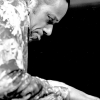 "
data-original-title="" title="">The Jazz Messengers led by
"
data-original-title="" title="">The Jazz Messengers led by 
Art Blakey
drums1919 - 1990

Horace Silver
piano1928 - 2014
Fraedrich has been featured trumpet soloist with The Army Blues, the premier jazz ensemble of the US Army, since 1986. He has also served as the group's trumpet section leader, assistant group leader, and musical director, and has composed or arranged more than 100 pieces for the Blues. Even the most summary list of his other collaborators includes such jazz legends as

Curtis Fuller
trombone1934 - 2021

Dave Liebman
saxophoneb.1946

Jon Faddis
trumpetb.1953

Ramsey Lewis
piano1935 - 2022

Kenny Rittenhouse
trumpetb.1966
From the opening "A Minor Matter," tempos and sounds on Out of the Blues prove Mondello's words true: Soloists Rittenhouse, Fraedrich and guitarist
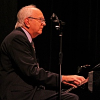
Jim Roberts
piano
Dizzy Gillespie
trumpet1917 - 1993

Freddie Hubbard
trumpet1938 - 2008
What sounds like Hammond B-3 organ funk in "BugaBlue" is actually an effect on Roberts' guitar, as pianist
Tony Nalker
piano
John Coltrane
saxophone1926 - 1967
Graham Breedlove
trumpetAmong all these gallops and sprints, the balladic blues "Sometimes I Feel Like a Motherless Child" shines like a gemstone. Fraedrich's lead flugelhorn softly emerges from the ensemble, first to wander and wonder, sweet and sad, in stark solitude; but then more confidently steps from unsure meditation into full-blown declaration in a sound that nearly says, "Yes I can!"
Out of the Blues would have sounded just fine cooking through the hard-bop kitchens manned by Blakey, Silver, and company six decades ago, which most likely means that it will sound just fine six decades from now, too.
 Rhett Frazier
Rhett FrazierWelcome to the Club
Self-Produced
2017
Rhett Frazier was born and raised in Texas and Oklahoma. Born and raised by family deeply steeped in every strain of America's soul music. And born and raised to vocally stomp through soul and funk. Grandpop played guitar and fiddle in a western swing band. Cousins Alan and Mike are bluegrass and country music mainstays The Frazier Brothers. Uncle Mick Roemer is a jazz pianist and singer.
After fronting several incendiary blues bands that barnstormed through Texas and Oklahoma, Frazier traveled to Los Angeles to record his dream album—a soul record in the classic southern styles of Hi Records and/or Stax Records. But like so many music business dreams, Frazier's dream got shelved. It was never released.
Instead, the singer turned the page with two skeletal funk albums as " data-original-title="" title="">Rhett Frazier, Inc. (2010's Escape from Dee-Troyt [Digi-Soul] and 2012's Every Day is Saturday [Double Inc.]), which became mainstays in the LA electric soul scene.
But in 2017, Frazier made his own dream come true by releasing that dream album his damn self. Welcome to the Club proves that he was absolutely right to stay committed to that dream. Produced by Dusty Wakeman (mixmaster for country artists

Lucinda Williams
vocals
Eric Clapton
guitar and vocalsb.1945
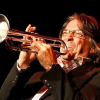
Lee Thornburg
trumpet
Tower of Power
band / ensemble / orchestrab.1968
In this swirling soul cauldron, the Scottish edges on Frazier's voice take on the powerful spiritualism of

Van Morrison
vocalsb.1945

Ray Charles
piano and vocals1930 - 2004

Little Richard
piano1935 - 2020
"Always on the Outside" compacts rock and soul and rhythm and blues into three sparkling minutes, the kind of fifties soul that Peter Wolf so often and so lovingly resurrected in The J. Geils Band. "Stalemate" slowly but steadily cooks up Memphis blues bubbling with soulful organs, mournful guitars, and just enough backbeat to keep the music from standing still; it's a musical shame that

Prince
multi-instrumentalist1958 - 2016
But nothing surpasses Frazier's cover of the Jimmy Miller/

Steve Winwood
keyboardsb.1948
It's entirely possible that Welcome to the Club makes your own soul dreams come true, too.
 "
data-original-title="" title="">Nils Landgren Funk Unit
"
data-original-title="" title="">Nils Landgren Funk Unit Unbreakable
ACT Records
2017
The very first album released by German progressive label ACT Records (in 1994) was by the Funk Unit led by trombone master

Nils Landgren
tromboneb.1956

Maceo Parker
saxophone, altob.1943

Michael Brecker
saxophone, tenor1949 - 2007

Bernard Purdie
drumsb.1939
Unbreakable was recorded at famous Atlantis Studios in Stockholm, where ABBA recorded many of their hit records. Randy Brecker and

Tim Hagans
trumpetb.1954

Ray Parker, Jr.
guitarb.1954
Parker's rhythm guitar hook slices open the title track and then drummer Robert Ikiz nails the funk groove down, Landgren blows funk and fire through his trombone and the rest of the Unit tighten up a

Tower of Power
band / ensemble / orchestrab.1968

Allen Toussaint
piano and vocals1938 - 2015
"Old School" gloriously melts form into content, old-school funk extolling the virtues of old-school funk with guitar and drums scattering the rhythm like flower petals beneath the horn players' dancing feet. "Rockin' After Midnight" (Marvin Gaye) kicks out the all-star jams, with Parker's itchy rhythmic hook and Brecker's trumpet solo—processed in electronics but gestated in jazz—shining out from an ensemble that rumbles like musical thunder.
PS: Bail out before the closing track, even though you'll miss a nice Parker guitar solo. Nils, if you're reading: After an hour of taut, tight funk, why would you need to drop faux ghetto patois into "Bow Down" to sound cool? "You like to think that you was all that/ I guess you lied 'cause you know that you're whack," in a sexagenarian voice of any gender, ethnicity, or persuasion, is embarrassing for both speaker and listener. This set was plenty good without it.
 Malo
MaloLatin Bugaloo: The Warner Bros. Singles
Omnivore Recordings
2018
"Malo was pretty much a jam," reflects Malo bandleader " data-original-title="" title="">Jorge Santana (younger brother to

Carlos Santana
guitarb.1947
Latin Bugaloo compiles the A-and B-sides of six Malo singles released during the band's 1970s golden age, plus two sides ("Pana" and "Just Say Goodbye") released as a single only in Turkey for reasons not even Santana remembers. Because the original albums versions of these songs often ran around ten minutes ("pretty much a jam"), these edited single versions sound almost new. "Malo has something that set it apart from established groups like El Chicano," Santana continues. "We had Latin percussion and we had a horn section."
And they had "Suavecito," the breakout hit single from their debut album, often called "the Chicano national anthem," and written by the band's timbale player (Richard Bean) as a poem to a girl in his high school algebra class. Equal parts

War
band / ensemble / orchestra
Luis Gasca
trumpetb.1940
B-side "Nena" churns out a Latin-rock raveup full of blasting horns and busted open by trombone, trumpet and electric guitar solos, a frantic and spirited unbridled romp like a pony still learning its own strength, reach and grasp.
Written by legendary Cuban pianist and sometimes Malo member

Francisco Aguabella
congas1925 - 2010
"CafЁҰ" sounds very much like Jorge's older brother's hit "Supernatural," flowing with soul and clattering with percussive timbales. (Malo wasn't much for ballads.)
"We were simply young," Santana wistfully recalls. "Too young for understanding the blessings that we had all received: Having an album out, having the opportunity to play among each other as a band, and to tour."
"It was quite a ride."


Marbin
band / ensemble / orchestrab.2007
Israeli Jazz
Self-Produced
2018

Marbin
band / ensemble / orchestrab.2007
Danny Markovitch
saxophoneDani Rabin
guitar"Both Danny and I grew up in Israel listening to Israeli music, but we also grew up listening to jazz, rock, folk and blues," Rabin explains. "We felt it's appropriate to name the album Israeli Jazz because it gives a more whole and nuanced look to music that undeniably has Israeli roots, but at the same time is drawing from other traditions and fuses them into a coherent vision."
There's no doubt magic in their combination. With a powerhouse rhythm section (bassist Jon Nadel and drummer Blake Jiracek) keeping solid time, the two primary voices in Marbin play more like one. In more than a few places in their Israeli Jazz, you cannot tell their voices apart.
"The Old Ways" sound exciting and new in Marbin's eight hands: Dancing saxophone and drums call the tribe to order, then electric guitar chords grow more forceful and loud until a blues-rock-jazz guitar jam erupts,

Robin Trower
guitar
Jimi Hendrix
guitar, electric1942 - 1970

Duane Allman
guitar1946 - 1971
Two back-to-back offerings suggest cocktail hour: "Moscow Mule" displays a distinctly Russian saxophone sound and melody which Rabin shreds like a garment; "Pirate Punch" doubles up its heady pleasures with a spacious moody blues that eventually erupts into a communal jam that's simultaneously world, rock, blues, and jazz music. And again, when Rabin and Markovitch play together, your ears cannot tell them apart.
"To us, jazz is about the spirit of the music. At the heart of our music there are always improvised solos over harmony and form," Markovitch muses. "Good jazz always has a delicate balance between chaos, the solos, and order, the compositions/arrangements, and that's the line we tread on while allowing ourselves to explore all the other aspects of music."
Tracks and Personnel:
Hugo Fattoruso Y Bario Opa
Tracks: La Del Cheche; Botijas; Candombe Beat Funk; El Romance Del Sordo; Trenes De Tokyo; Candombelek; Candombe Alto; Llamada InsЁ®lita; Antes / Goldenwings; For You To Be Proud; Berimba-?; Anima 2.
Personnel: Hugo Fattoruso: keyboards, vocals, arrangements; Francisco Fattoruso: bass; Tato Bolognini: drums; Albana Barrocas: percussion, vocals; NicolЁўs Ibarburu: electric guitar; MathЁӘas Silva: tambor piano; Guillermo DЁӘaz Silva: tambor chico; Wellington Silva: tambor repique.
Out of the Blues
Tracks: A Minor Matter; Shades of Blue; BugaBlue; Never Let Me Go; R.S.V.P.; Sometimes I Feel Like a Motherless Child; Giant Steps; Missing You; I'll See You in a Bb Blues.
Personnel: Craig Fraedrich: trumpet, flugelhorn; Mark Wood: trumpet, flugelhorn; Ken McGee: trumpet, flugelhorn; Graham Breedlove: trumpet, flugelhorn; Kenny Rittenhouse: trumpet, flugelhorn; Tony Nalker: piano; Jim Roberts: guitar; Steve Fidyk: drums; Regan Brough: bass.
Welcome to the Club
Tracks: Welcome to the Club; Holy Pimp; Tell; I'm a Man; Eat Your Heart Out; Stalemate; Funky Junky; Sonny Liston; Honest Wage; Always on the Outside; 3 Day Binge.
Personnel: Rhett Frazier: vocals; Dusty Wakeman: bass, backing vocals; Ted Hutt: lead guitar; Marcelo Cosenza: rhythm guitar; Pride Hutchison: drums; Dick Sims: keyboards, Hammond B-3, Fender Rhodes, Wurlitzer; Lee Thornburg: trumpet, trombone, flute; Dave "Woody" Woodford: saxophone; Juke Logan: harmonica; Donny Gerard: backing vocals; Chris Pierce: backing vocals; Sergio Pastora: percussion; Doug Pettibone: lead guitar, pedal steel; Gia Ciambotti: backing vocals; Spencer Davis: backing vocals; Roberta Freeman: backing vocals; Renee Goldberry: backing vocals; Denny Freeman: lead guitar.
Unbreakable
Tracks: Unbreakable; Just a Kiss Away; Get Down on the Funk; Friday Night; Stars in Your Eyes; Rockin' After Midnight; Soulchild; Old School; NLFU Funk; Bow Down.
Personnel: Petter Bergander: keyboards; Randy Brecker: trumpet; Tim Hagans: trumpet; Robert Ikiz: drums; Nils Landgren: trombone, vocals; Ray Parker, Jr.: guitar, vocals; Andy Pfeiler: guitar, vocals; Magnum Coltrane Price: bass, keyboards, vocals; Jonas Wall: horn arrangements, saxophone.
Latin Bugaloo: The Warner Bros. Singles
Tracks: Suavecito; Nena; Cafe; Peace; Just Say Goodbye; Pana; I'm For Real; Oye MamЁў; Latin Bugaloo; Midnight Thoughts; I Don't Know; Merengue; Love Will Survive; Think About Love.
Personnel: Bill Atwood: trumpet; Richard Bean: timbales, vocals; George Bermudez: congas; Forrest Buchtel: trumpet; Hadley Caliman: flute, baritone sax, tenor sax; Ron Demasi: clarinet, clavinet, flugelhorn, mellotron, organ, electric piano, synthesizer, trumpet, vibraphone, vocals; Carlos Federico: vocals; Mike Fugate: trumpet; Arcelio Garcia, Jr.: percussion, vocals; Luis Gasca: trumpet; Mike Heathman: trombone; Richard Kermode: organ, percussion, piano, electric piano; Nick Mendez: bongos, timbales; Roy Murray: horns; Tom Poole: trumpet; Bobby Ramirez: drums; Raul Rekow: congas; Alex Rodriguez: trumpet; Leo Rosales: bongos, congas, drums, percussion, timbales, vocals; Jorge Santana: acoustic guitar, electric guitar, percussion, violin; Steve Sherard: trombone, vocals; Tony Smith: drums, vocals; Richard Spremich: drums; Pablo Tellez: acoustic bass, electric bass, guitar, percussion, timbales, vocals; John Watson: vocals; Willie G.: vocals; Abel Zarate: guitar, vocals.
Israeli Jazz
Tracks: The Old Ways; Swamp House; Arkansas Jumper; Moscow Mule; Pirate Punch; Magic Burro; Israeli Jazz.
Personnel: Dani Rabin: guitar; Danny Markovitch: saxophones; Jon Nadel: bass; Blake Jiracek: drums.
Tags
Comments
About Hugo Fattoruso
Instrument: Multi-instrumentalist
PREVIOUS / NEXT
Support All About Jazz
 All About Jazz has been a pillar of jazz since 1995, championing it as an art form and, more importantly, supporting the musicians who make it. Our enduring commitment has made "AAJ" one of the most culturally important websites of its kind, read by hundreds of thousands of fans, musicians and industry figures every month.
All About Jazz has been a pillar of jazz since 1995, championing it as an art form and, more importantly, supporting the musicians who make it. Our enduring commitment has made "AAJ" one of the most culturally important websites of its kind, read by hundreds of thousands of fans, musicians and industry figures every month.








 Buy Now
Buy Now



